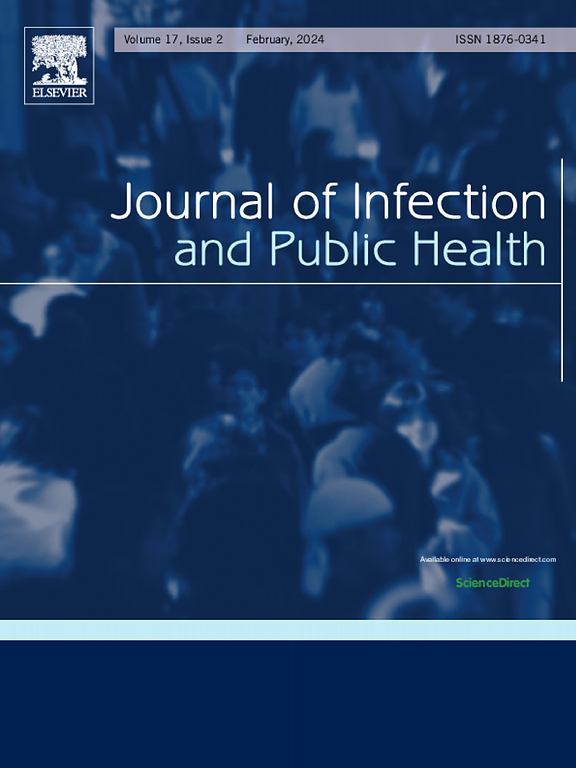Dengue virus infection: A systematic review of pathogenesis, diagnosis and management
IF 4
3区 医学
Q1 INFECTIOUS DISEASES
引用次数: 0
Abstract
Dengue fever (DF), caused by the dengue virus (DENV), remains a significant global health threat. Despite its impact, no specific antiviral treatments exist, and accurate diagnosis is critical for effective management. This review explores DENV pathogenesis, diagnostic approaches, and management strategies. Host-virus interactions, including antibody-dependent enhancement (ADE), cross-reactive memory T cells, and anti-DENV NS1 antibodies, are key factors in disease progression. Viral proteins, such as the envelope (E) and NS1, along with genome variations, contribute to disease severity. Diagnostic methods have evolved from conventional assays to rapid serological assays and point-of-care tests, enhancing early detection. However, clinical management remains supportive, focusing on fluid resuscitation tailored to the patient's clinical status, close monitoring of vital signs, and judicious use of blood products for severe cases. This study suggests that a deeper understanding of DENV pathogenesis, improved diagnostic tools, and the development of effective therapeutics are essential for optimizing dengue management.
登革病毒感染:发病机制、诊断和管理的系统综述。
由登革热病毒(DENV)引起的登革热(DF)仍然是一个重大的全球健康威胁。尽管其影响很大,但目前还没有特定的抗病毒治疗方法,准确的诊断对于有效的治疗至关重要。本文综述了DENV的发病机制、诊断方法和治疗策略。宿主-病毒相互作用,包括抗体依赖性增强(ADE)、交叉反应记忆T细胞和抗denv NS1抗体,是疾病进展的关键因素。病毒蛋白,如包膜(E)和NS1,以及基因组变异,有助于疾病的严重程度。诊断方法已经从传统的分析发展到快速血清学分析和即时检测,从而加强了早期发现。然而,临床管理仍然是支持性的,重点是根据患者的临床状况进行液体复苏,密切监测生命体征,并在严重病例中明智地使用血液制品。这项研究表明,深入了解登革热病毒的发病机制、改进诊断工具和开发有效的治疗方法对优化登革热管理至关重要。
本文章由计算机程序翻译,如有差异,请以英文原文为准。
求助全文
约1分钟内获得全文
求助全文
来源期刊

Journal of Infection and Public Health
PUBLIC, ENVIRONMENTAL & OCCUPATIONAL HEALTH -INFECTIOUS DISEASES
CiteScore
13.10
自引率
1.50%
发文量
203
审稿时长
96 days
期刊介绍:
The Journal of Infection and Public Health, first official journal of the Saudi Arabian Ministry of National Guard Health Affairs, King Saud Bin Abdulaziz University for Health Sciences and the Saudi Association for Public Health, aims to be the foremost scientific, peer-reviewed journal encompassing infection prevention and control, microbiology, infectious diseases, public health and the application of healthcare epidemiology to the evaluation of health outcomes. The point of view of the journal is that infection and public health are closely intertwined and that advances in one area will have positive consequences on the other.
The journal will be useful to all health professionals who are partners in the management of patients with communicable diseases, keeping them up to date. The journal is proud to have an international and diverse editorial board that will assist and facilitate the publication of articles that reflect a global view on infection control and public health, as well as emphasizing our focus on supporting the needs of public health practitioners.
It is our aim to improve healthcare by reducing risk of infection and related adverse outcomes by critical review, selection, and dissemination of new and relevant information in the field of infection control, public health and infectious diseases in all healthcare settings and the community.
 求助内容:
求助内容: 应助结果提醒方式:
应助结果提醒方式:


